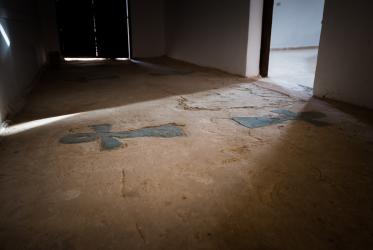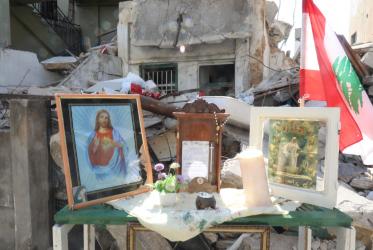Displaying 1 - 7 of 7
Lahore bombing shows vulnerability of Pakistanis
31 March 2016
Killer Robots? Moral questions pervade UN conference
23 April 2015
WCC condemns bomb attacks on Lahore churches
17 March 2015
Momentum builds for ban on nuclear weapons
16 December 2014



